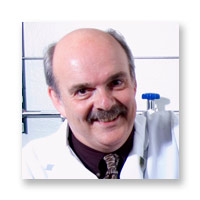MSNBC features Jay Dean's WWII aviation physiology research

Click here to read MSNBC story featuring Jay Dean’s comments.
USF neurophysiologist Jay Dean’s research on World War II advances in aviation physiology was featured in a May 1 story by MSNBC.
The piece titled “Parachuting dog helped win WWII” focuses on a team of American physiologists who studied the effects of high-altitude flight on the body and how the technology inspired by their work was a key to the Allied victory in the air. That research involved a sky diving St. Bernard dog known as “Major,” who sported his own custom oxygen mask.

Dr. Dean, professor of molecular pharmcology and physiology, is working on a book about Allied advances in aviation physiology. His historical research was presented at a recent Experimental Biology conference in San Diego.
“(Pilots) had two enemies – they had the enemy shooting at them and they had the unseen enemy, which was the environment,” he said. “The physiologists knew they had to do something to learn to protect the health of the war fighter.”
One of the world’s leading experts in hyperbaric neurophysiology, Dr. Dean uses hyperbaric chambers to study how pure oxygen at normal and high barometic pressures affects the central nervous system.
See related articles:
– USF Health story about Dr. Dean’s research on WWII aviation physiology.
– American Physiological Society interview with Dr. Dean

